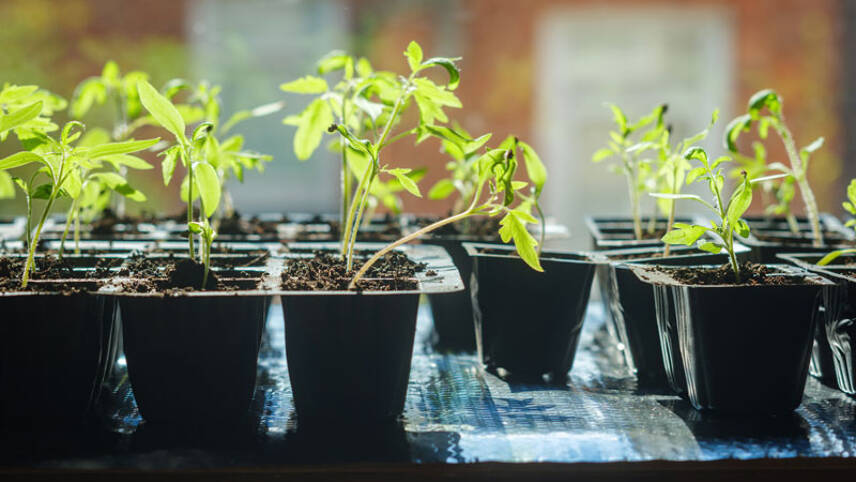Register for free and continue reading
Join our growing army of changemakers and get unlimited access to our premium content

This warning has come as Britain faces accusations of continuing to import food commodities linked to deforestation in tropical forests, despite the introduction of a ban almost two years ago.
On domestic horticulture – the production of fruit, vegetables and ornamental plants – the House of Lords Horticultural Sector Committee has stated that the sector is “under-prioritised and unappreciated by policymakers”.
The Committee members argue in a new report that there is not a joined-up strategy for reducing the sector’s environmental impacts and maximizing its potential environmental benefits, such as carbon sequestration in soils and improvements to biodiversity. This could undermine the delivery of UK targets on climate and nature as well as hampering future economic growth, the Lords are warning.
The report calls climate change and biodiversity loss “twin crises of our times” for horticulture.
Regarding the current negative environmental impacts of the sector, the report spells out the scale of the use of fertilisers and pesticides known to degrade soil quality and present risks relating to water pollution. It warns that the scale and nature of these risks is still largely unknown.
The report welcomes the fact that post-Brexit payment schemes for farmers do incentivise them to measure and improving soil and water quality.
But it also points out that an updated National Action Plan for pesticides was due in the first half of 2023 and is now overdue. Similarly, Soil Health Action Plan for England is currently being delayed until 2028 at the earliest.
The report urges Ministers to pick up these workstreams and give them greater prioritization. It puts forward the case for the plans to detail numerical, time-bound targets for reducing the use of agri-chemicals that are “demonstrably harmful”.
Another key contributor to the sector’s environmental degradation is the use of growing media containing peat. Peat extraction can degrade peatlands, limiting their ability to sequester carbon and provide natural flood management benefits.
Peat-containing products are therefore being banned in public-facing retail in 2024.
The Government set out plans to end the use of peat in professional horticulture by 2030 through the 25-Year Environment Plan, published 2018. This was built upon earlier this year with voluntary for a phased reduction in peat use through to 2026, laying the foundation for a ban this decade.
Members of the Committee heard concerns that these targets were too strict due to the current levels of availability of peat-free products, plus their higher costs. Business leaders warned of a “cliff edge”.
The Committee’s conclusion is that businesses have had years to prepare and should have moved faster on a voluntary basis. However, given that most have not, the Government now needs to provide additional support including a review of the R&D landscape to fast-track innovation.
There should also be detailed guidance of how the ban will work in practice. Guidance should, the Committee argues, ensure that the UK does not end peat extraction for horticulture domestically but permit it elsewhere.
A spokesperson for the Department for the Environment, Food and Rural Affairs (Defra) said it had supported some important R&D projects including the RHS Fellowship looking at the growing of peat-free plants.
Responding to the report more broadly, the spokesperson said: “The domestic horticulture sector is crucial to the resilience of our food system and an important part of the wider economy.
“We are hard at work supporting the sector with the challenges they face – which is why we have provided 45,000 seasonal workers to help pick crops next year, and why at the Farm to Fork summit we announced a comprehensive range of measures to support this essential industry, including our forthcoming consultation on the fairness in the horticulture supply chain.”
Deforestation-linked imports
In related news, Global Witness has published the results of an investigation into deforestation in commodity supply chains for products imported to Britain. Deforestation was assessed for seven commodities including palm oil, soy, beef and leather.
The investigation, carried out with traceability experts at Trase, concluded that the forest-risk commodities imported to the UK between November 2021 and July 2023 are linked to more than 50,000 acres of deforestation.
Most of this deforestation happened in tropical areas. In these regions, an area twice the size of Paris was cleared. The most affected places are Indonesia and Brazil.
November 2021 was selected as the starting date for the investigation as it marked the signing of the UK’s Environment Act. The Act implemented a ban on the import of forest-risk commodities linked to illegal deforestation.
Global Witness’s head of forest campaigns Veronica Oakeshott is urging the UK Government to “listen to UK retailers and fully align with the EU’s deforestation regulation”. The bloc has banned the import of all forest-risk commodities linked to any deforestation after 2020.
Former Environment Minister Zac Goldsmith said: “We passed the Environment Act with much fanfare, not least so we could present ourselves as a world leader at COP26 which we hosted in Glasgow in 2021. And it was a genuinely landmark law to cut illegal deforestation caused by commodity production from our supply chains.
“But there has been virtually no progress since the law passed and not a single tropical tree has yet been saved.
“It should go without saying that there is no solution to climate change, indeed there is no future for our species, if we fail to halt the loss of the world’s great forests. So the government needs to stop with the delays and u-turns and get on with it.”


Please login or Register to leave a comment.